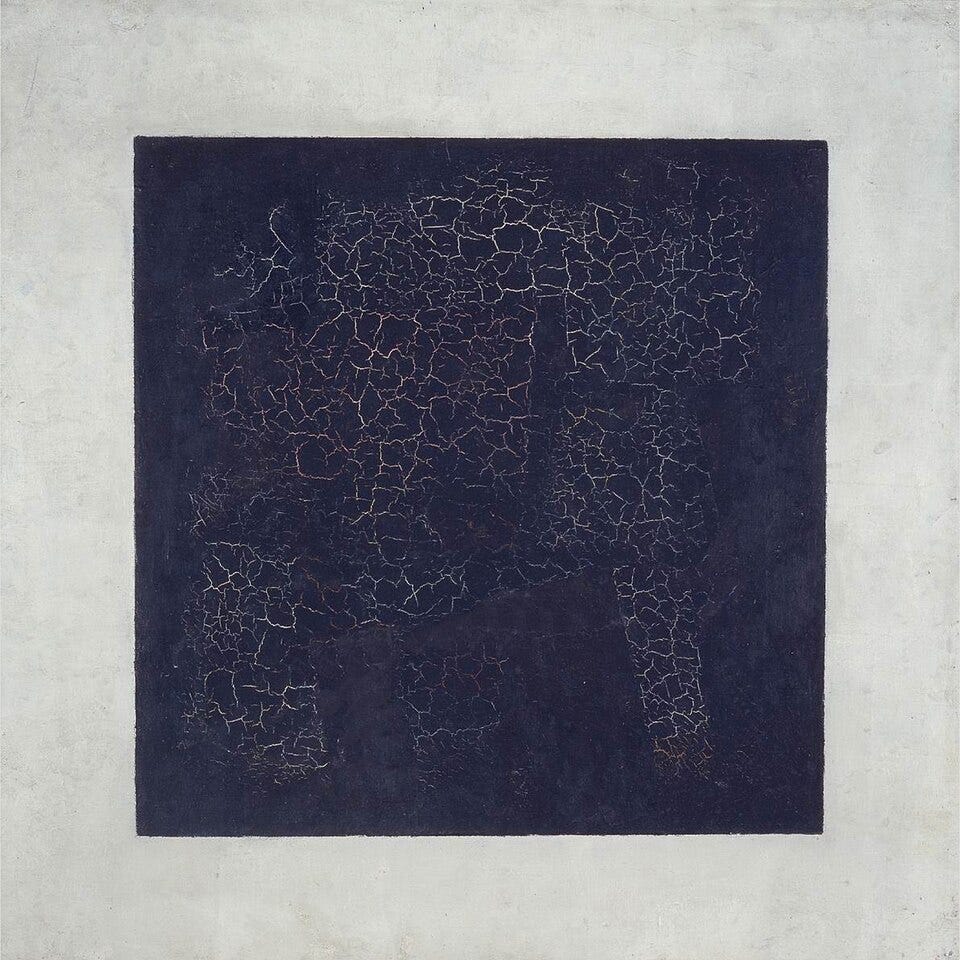It’s not all a matter of taste
Sometimes you have to learn to love art and that's okay.
The things you don’t like may just need a little more investment.
We’ve all rolled our eyes at foreign film watchers, contemporary art appreciators, and postmodern fiction readers. But their tendency for arrogance and self-satisfaction aside, maybe we should be more like them.
It’s easy to read one poem or attend one opera and decide it’s not for you. Without the background understanding of art history, a contemporary art exhibit looks random with its found objects and canvases with colorful shapes. But once you understand a little bit more, a new world is unlocked.
My colleague gave a short talk on contemporary art last year that opened up my eyes. She explained avant-garde artist Kazimir Malevich’s “Black Square” as a radical departure from the imitations and representations of previous centuries of art. What I would have walked by with an eyeroll in an art museum before, I suddenly understood on a new level.
The same thing happened with my boyfriend and hip-hop. Those who know me know I’m of the Stevie Nicks, Joni Mitchell, Taylor Swift listening persuasion, but by listening to more hip-hop, I learned to appreciate a genre I never would have enjoyed previously. So much of contemporary hip-hop builds on samples used by great artists of the past. Their lyrics are in conversation with past artists. It took me a while to enjoy listening to my boyfriend’s music, but with some repetition and explanations from him, I began to see the outstanding artistry at work in the songs he loves.
Will I ever love hip-hop as much as him? Probably not, but I was surprised how quickly a genre I never previously enjoyed became relevant to me.
I should have known this was true, because my favorite literary genre, poetry, is at this point a mostly irrelevant art. My theory is that it requires too much investment before the payoff for most people.
Poems that were universally read by readers past, are now at best a homework assignment for most contemporary readers.
Take the first few lines of T.S. Eliot’s “The Love Song of J. Alfred Prufrock” :
Let us go then, you and I, When the evening is spread out against the sky Like a patient etherized upon a table;
It’s hard to appreciate what was, for its time, an earth-shattering shift away from the softer sensibilities of traditional English poetry.
Compare the first lines of Christopher Marlowe’s “The Passionate Shepherd to His Love”
Come live with me and be my love, And we will all the pleasures prove, That Valleys, groves, hills, and fields, Woods, or steepy mountain yields.
Eliot’s invocation of the modern, medical, and bleak invites the reader into a drastically different landscape from Marlowe’s. Throughout the poem, Eliot continually challenges conventionally poetic subjects like love, beauty, and youth in favor of his modern sensibility. The poem is earth-shattering, but only if you understand poetry.
In sharing my poetry writing, I’ve learned people are intimidated by the genre. They assume they are just too unskilled or the wrong kind of person to understand it. I think far more often, they just lack the context. Poetry isn’t meant to be esoteric or difficult, though some of it is. Through much of history, poetry was for everyone in the same way a pop song is now.
Some places to start:
Read Zero at the Bone by Christian Wiman — both poetry and memoir about staving off despair in the face of affliction
Read a collection of one hundred popular poems. Find one you like and read more of the poet. This is a great way to find a starting point with poetry. You probably won’t read if it feels like a chore, so follow what you resonate with to start. You might find, like I have, that what you like changes as you develop a deeper understanding of the genre.
Lastly, if you’ll accept some non-expert advice, don’t worry too much about understanding. Let the poet take you for a ride. Let them sing their song to you and remain open to what you don’t yet understand.



I had almost that exact experience, Jess, when I was in grad school around 2007-8. I admitted to a fellow student that I enjoy practically every musical genre with the exception of rap and Nashville country. The very next week he handed me a CD he had burned just for me and I got to experience rap through the ears of someone who loves it.
Another genre that I found challenging for many years were composers of the Romantic era, such as Richard Wagner or Richard Strauss. I found that these demanded my entire attention, usually a few times over, before I could appreciate the beauty of their interplay of dissonance and consonance and how they demand a visceral emotional response from me.
None of this has yet happened for me with Nashville country, however, but maybe...